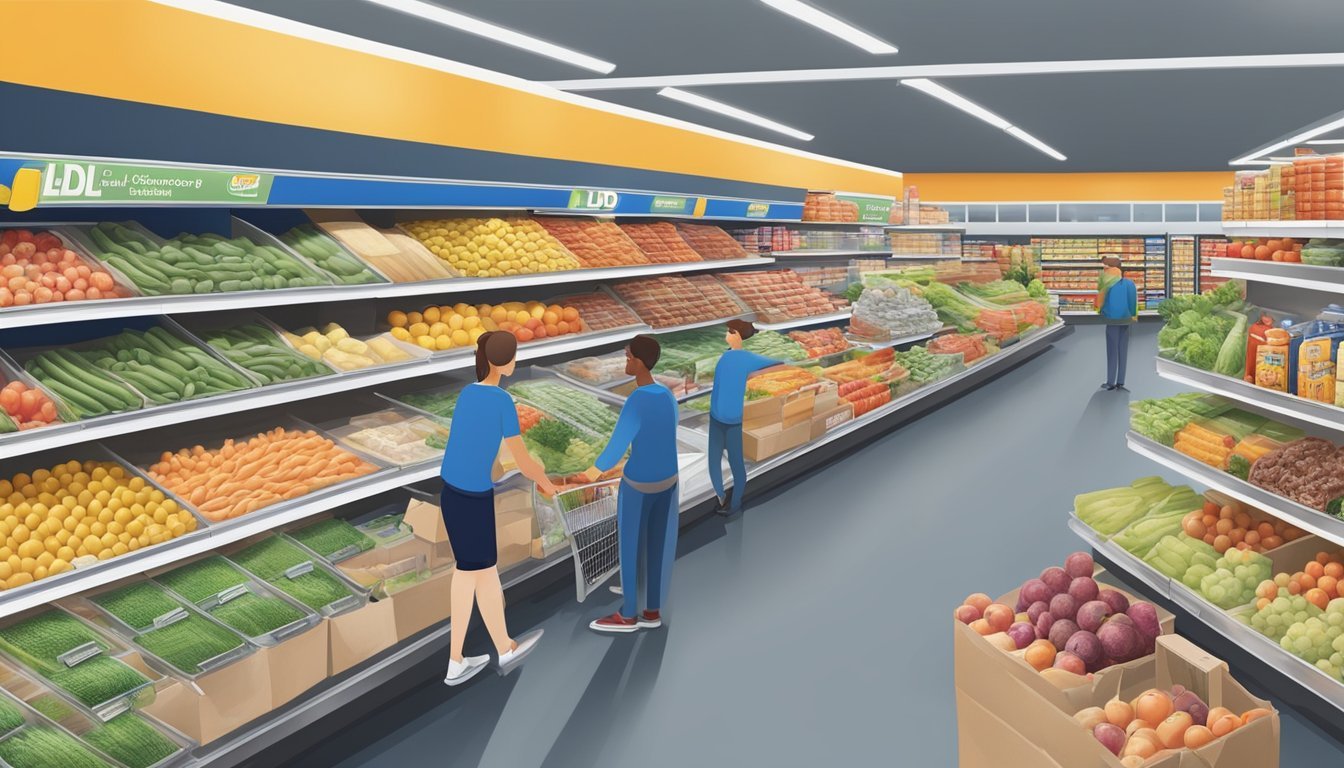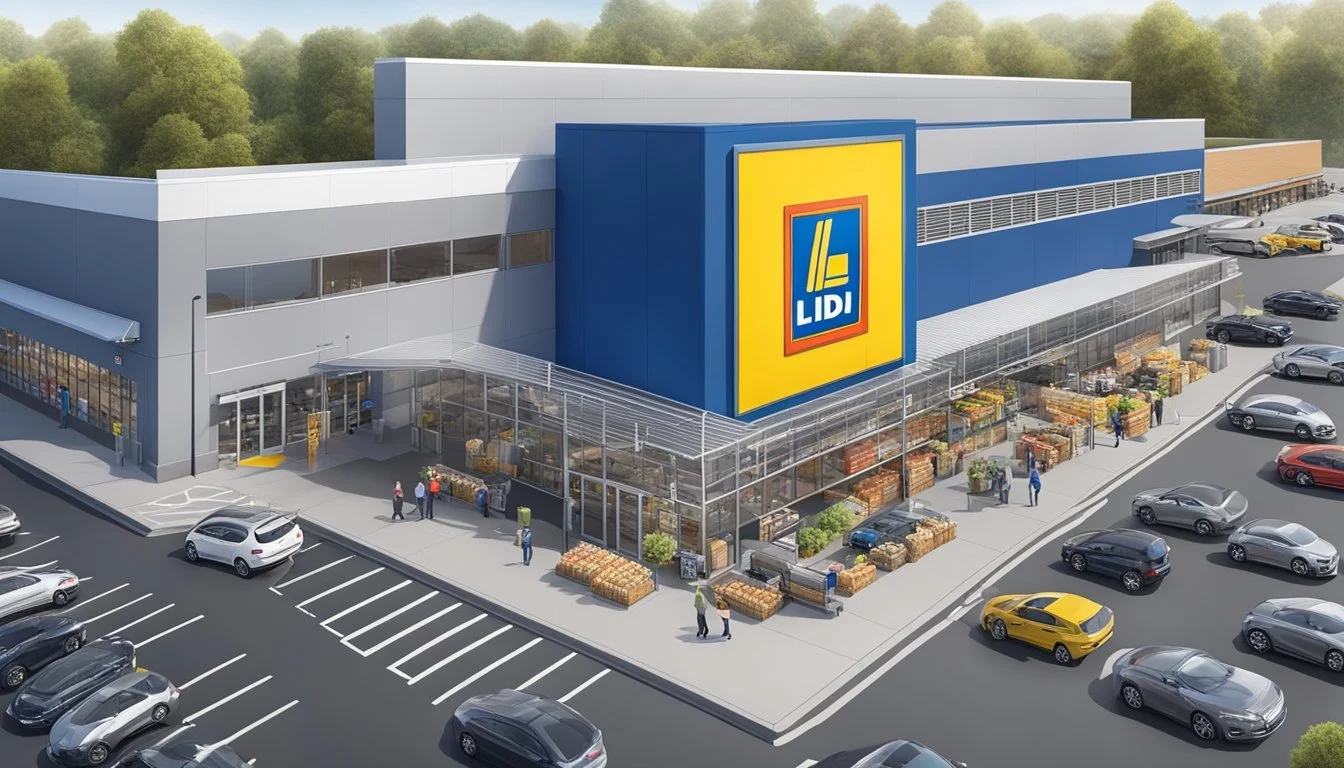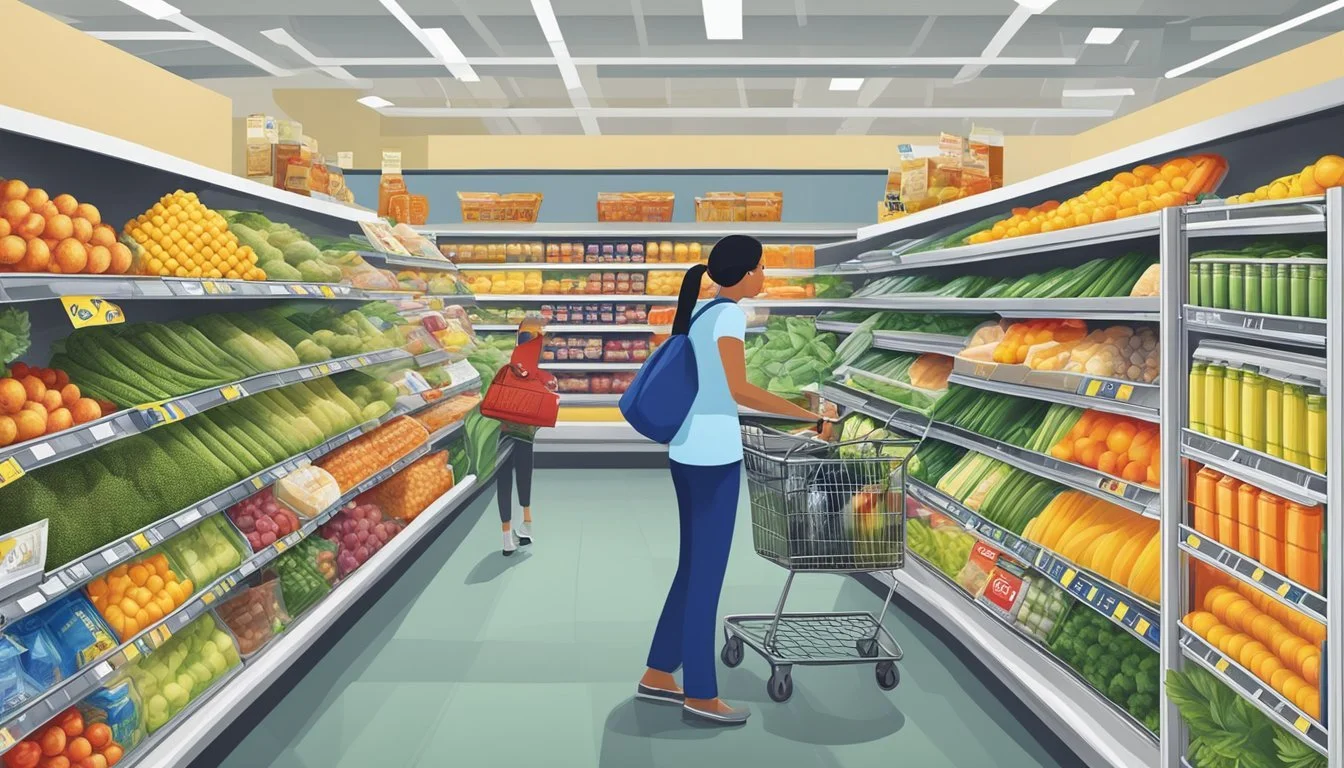Is Lidl Cheaper Than WinCo Foods?
A Price Comparison of Budget Grocery Stores
Grocery shoppers seeking the best deals often compare prices at different stores. Lidl and WinCo Foods are two popular budget-friendly options that have gained attention for their low prices. While both offer competitive rates, WinCo Foods generally edges out Lidl as the cheaper option for most grocery items.
WinCo Foods operates a no-frills business model, focusing on bulk sales and minimal advertising to keep costs down. This approach allows them to offer lower prices on many products compared to other grocery chains. Lidl, a German discount supermarket, has expanded its presence in the U.S. market with a similar cost-cutting strategy.
Both stores prioritize savings for customers, but their availability varies by region. WinCo Foods has a stronger presence in the western United States, while Lidl has been expanding primarily along the East Coast. Shoppers looking to stretch their grocery budget would do well to compare prices at these stores when available in their area.
Understanding Grocery Store Pricing
Grocery store pricing involves complex strategies and factors that influence the final cost of products. Retailers balance operational costs, market competition, and consumer demand to set their prices.
Factors Influencing Prices
Operational costs play a significant role in determining grocery prices. These include rent, utilities, labor, and transportation expenses. Larger chains like Walmart and WinCo Foods often have lower operational costs due to economies of scale.
Supply and demand dynamics also affect pricing. Seasonal fluctuations in produce availability can lead to price variations throughout the year. Additionally, global economic factors such as fuel prices and currency exchange rates impact the cost of imported goods.
Location is another crucial factor. Urban stores typically face higher rent and labor costs, which can result in slightly higher prices compared to rural locations.
Comparison of Pricing Strategies
Discount stores like Lidl and WinCo Foods often employ a low-price strategy across their entire product range. They focus on private-label brands and limited selection to keep costs down. These stores frequently use a high-volume, low-margin approach to maintain profitability.
Traditional supermarkets may use a mix of pricing strategies. They often feature "loss leaders" - items sold at or below cost to attract customers. These stores compensate by pricing other products higher.
Some chains use zone pricing, adjusting prices based on local competition and demographics. This allows them to maximize profits in less competitive areas while remaining competitive in others.
Loyalty programs and digital coupons are increasingly used by retailers to offer personalized discounts. These strategies aim to build customer loyalty while allowing stores to maintain higher base prices.
Price Analysis of Common Grocery Items
Lidl and WinCo Foods offer competitive pricing on a wide range of grocery items. Both stores aim to provide value to budget-conscious shoppers through different strategies and product offerings.
Produce and Meat Pricing
Lidl typically offers lower prices on produce compared to WinCo Foods. Seasonal fruits and vegetables are often discounted at Lidl, with weekly specials providing additional savings.
WinCo Foods, however, tends to have more competitive pricing on meat products. Their bulk meat options allow customers to save by purchasing larger quantities.
Both stores offer store-brand alternatives for many produce and meat items, which can result in further savings compared to national brands.
Dairy, Bakery, and Frozen Food
Lidl generally has an edge in dairy pricing, particularly on milk and eggs. Their European-style bakery often features lower prices on fresh bread and pastries compared to WinCo Foods.
WinCo Foods excels in frozen food pricing, offering a wider variety of budget-friendly options. Their bulk frozen vegetables and fruits are particularly cost-effective for families.
Both stores provide competitive pricing on cheese, yogurt, and ice cream, with frequent promotions on these popular items.
Household Essentials and Bulk Goods
WinCo Foods stands out in bulk goods pricing, offering a vast selection of dry goods, nuts, and grains at lower per-unit costs. Their bulk section allows customers to purchase exactly the amount they need.
Lidl typically has more competitive pricing on household essentials like cleaning supplies and paper products. Their limited-time special buys on non-food items can offer significant savings.
Both stores provide affordable store-brand options for common household items, allowing customers to save on everyday essentials.
Shopping Experience and Store Services
Lidl and WinCo Foods offer distinct shopping experiences with their own unique advantages. Both prioritize efficiency and value, but differ in their approaches to customer service, store layout, and available amenities.
Checkout and Customer Service
Lidl emphasizes a streamlined checkout process with minimal staff interaction. Self-checkout kiosks are common, allowing customers to quickly scan and pay for their items. Customer service desks are typically small and focused on handling returns or addressing specific issues.
WinCo Foods takes a more traditional approach. Their stores feature staffed checkout lanes, often with baggers to assist customers. Customer service counters are staffed to handle a wider range of inquiries and requests. WinCo's employee-owned structure can result in more engaged and knowledgeable staff members.
Both chains prioritize keeping costs low, which can sometimes mean fewer frills in terms of customer service amenities.
In-Store Environment and Convenience
Lidl stores are known for their compact, efficient layouts. Aisles are wide and clearly organized, with a focus on their store brand products. The stores often feature a bakery section with fresh bread and pastries. Lidl's "Middle of Lidl" section offers rotating non-grocery items like clothing and household goods.
WinCo Foods stores are larger, with a warehouse-style layout. They offer bulk bins for dry goods, allowing customers to purchase exactly the amount they need. The stores typically have longer operating hours, some open 24/7, catering to various schedules.
Both chains have limited in-store services compared to traditional supermarkets. Neither typically offers services like in-store pharmacies or banking. The focus is on providing essential grocery items at competitive prices.
Discounts, Savings, and Budgeting
Both Lidl and WinCo Foods offer various opportunities for customers to save money on their grocery bills. These stores provide weekly deals, loyalty programs, and budgeting-friendly options to help shoppers stretch their dollars further.
Weekly Deals and Seasonal Discounts
Lidl features a "Fresh 5" promotion, highlighting five produce items at exceptionally low prices each week. They also offer "Lidl Surprises" - limited-time special buys on non-food items.
WinCo Foods provides bulk bins for dry goods, allowing customers to purchase exactly the amount they need at lower prices. The store regularly rotates discounts on various products throughout their departments.
Both chains capitalize on seasonal sales, offering deep discounts on holiday-related items and seasonal produce. Shoppers can find significant savings by planning their purchases around these cyclical promotions.
Loyalty Programs and Savings Cards
Lidl's app offers digital coupons and personalized deals based on shopping history. Users can clip coupons directly in the app for easy redemption at checkout.
WinCo Foods does not have a traditional loyalty program. Instead, they focus on maintaining consistently low prices for all customers. This approach benefits shoppers who prefer straightforward pricing without the need to track points or rewards.
Both stores accept manufacturer coupons, providing additional savings opportunities for savvy shoppers who combine these with store promotions.
Effective Budgeting for Groceries
Creating a meal plan before shopping helps families stick to their grocery budget at both Lidl and WinCo Foods. This practice reduces impulse purchases and food waste.
Comparing unit prices is crucial, as both stores often offer larger package sizes at lower per-unit costs. Shoppers should consider storage space and family needs when opting for bulk purchases.
Utilizing store-brand products can lead to substantial savings. Lidl's private label items and WinCo's store brands offer quality alternatives to national brands at lower prices.
Flexible shopping dates allow customers to take advantage of mid-week sales and markdowns on perishable items, further reducing the grocery bill for budget-conscious households.
Brand Comparison and Private Labels
Lidl and WinCo Foods take different approaches to store brands and national products. Their strategies impact pricing and selection for consumers.
Lidl vs WinCo Store Brands
Lidl focuses heavily on private-label products, with around 90% of its inventory being store brands. These items are developed to match or exceed national brand quality at lower prices.
WinCo Foods offers a mix of store brands and national products. Their private labels, like "WinCo Foods" and "Everyday Value," provide budget-friendly options across many categories.
Lidl's store brands often feature unique European-inspired items, while WinCo's tend to be more conventional American staples.
National Brands and Pricing
Lidl stocks a limited selection of national brands, usually at competitive prices. Their model allows them to negotiate better deals with suppliers.
WinCo Foods carries a wider variety of national brands. They often price these products lower than other retailers due to their bulk purchasing power and no-frills approach.
Both stores aim to undercut competitors on popular name-brand items. However, WinCo's larger format typically offers more choices in national brands compared to Lidl's curated selection.
Quality and Variety of Offerings
Lidl and WinCo Foods both offer a range of grocery products, but their approaches differ in key areas. Each store has its own strengths when it comes to quality and selection.
Freshness and Quality of Groceries
Lidl emphasizes fresh produce and high-quality store brands. Their fruits and vegetables are often locally sourced when possible, ensuring freshness. Lidl's private label products undergo rigorous testing to meet quality standards.
WinCo Foods focuses on bulk offerings and no-frills presentation. While their produce section may be less extensive, they maintain competitive quality. WinCo's bulk bins allow customers to purchase exactly the amount they need, potentially reducing food waste.
Both stores carry name-brand items alongside their own labels. Lidl rotates limited-time specialty products, while WinCo maintains a consistent selection.
Organic and Specialty Products
Lidl has expanded its organic offerings in recent years. They stock a variety of organic produce, dairy, and pantry items under their "Lidl Bio" label. Specialty European products are also featured, particularly during themed promotional weeks.
WinCo Foods carries some organic options, though the selection is typically smaller than Lidl's. Their focus is more on conventional grocery items and bulk goods. WinCo does offer some specialty products, but the range is more limited compared to Lidl.
Both stores cater to dietary restrictions with gluten-free, vegan, and vegetarian options. Lidl tends to have a wider array of these specialty items, while WinCo's strength lies in its bulk section for staples and snacks.
Consumer Perceptions and Brand Reputation
Lidl and WinCo Foods have distinct consumer perceptions and brand reputations in the grocery market. Their positioning impacts how shoppers view their prices, quality, and overall value.
Customer Satisfaction Surveys
Recent surveys indicate high customer satisfaction for both Lidl and WinCo Foods. Lidl scores well for its efficiency and competitive pricing. Shoppers appreciate Lidl's streamlined store layouts and limited brand selection, which contribute to lower prices.
WinCo Foods garners praise for its bulk food options and employee-owned business model. Customers report feeling they get good value, with WinCo's prices often beating larger chains.
Both stores rank above average for price satisfaction compared to traditional supermarkets. However, some shoppers note limited selection as a tradeoff for lower costs.
Market Research and Ratings
Industry analysts consistently rate Lidl and WinCo Foods as top performers in price comparisons. A recent study found WinCo's prices about 27% below average grocery costs in surveyed areas.
Lidl's reputation has evolved from being seen as just a discount chain. Market researchers note a shift in perception, with some shoppers now viewing Lidl as a "wine merchant" for quality, affordable options.
WinCo maintains a strong reputation for low prices, particularly in Western states. Its no-frills approach resonates with budget-conscious consumers seeking everyday low prices rather than sales or coupons.
Grocery Store Locations and Accessibility
Lidl and WinCo Foods have different geographical footprints in the United States. Lidl operates primarily on the East Coast, with stores in several states from New Jersey to Georgia.
WinCo Foods has a presence in the western United States. The company has 139 stores across 10 states and territories, with its headquarters in Boise, Idaho.
Both chains focus on strategic location choices to maximize accessibility for their target customers. Lidl tends to establish stores in suburban areas with good visibility and easy access from major roads.
WinCo Foods often selects locations that can accommodate its larger, warehouse-style stores. These are typically found in areas with ample parking and room for high customer volumes.
Accessibility varies between the two chains. Lidl's smaller store format allows for more flexible location options, potentially increasing convenience for some shoppers.
WinCo Foods' larger stores may be less numerous but offer a wider selection under one roof. This can be beneficial for customers looking to complete extensive shopping trips in a single location.
Store density also differs between the two chains. Lidl has been rapidly expanding its U.S. presence, while WinCo Foods has a more established but geographically limited footprint.
Impact of Economic Factors
Economic conditions significantly influence pricing strategies and consumer behavior in the grocery retail sector. These factors shape the competitive landscape between discount chains like Lidl and WinCo Foods.
Inflation and Food Prices
Inflation has driven up food prices globally, with a 23% increase since 2020. This trend affects both Lidl and WinCo Foods, potentially narrowing the price gap between them. Lidl's European-style discount model allows for quick adjustments to market conditions, potentially giving it an edge in volatile economic times.
WinCo Foods, known for its low prices, may face challenges in maintaining its price advantage as costs rise. However, its employee-owned structure could provide flexibility in absorbing some price increases.
Operational Costs and Membership Fees
Lidl's cost-cutting measures contribute to its ability to offer low prices. The company's streamlined operations and limited product selection help keep operational costs down. This efficiency allows Lidl to pass savings on to customers without implementing membership fees.
WinCo Foods operates on a similar low-cost model but adds the benefit of a no-frills shopping experience. Unlike some competitors, WinCo doesn't charge membership fees, making it accessible to all shoppers. Both retailers focus on minimizing overhead to maintain competitive pricing in the face of rising operational costs.








